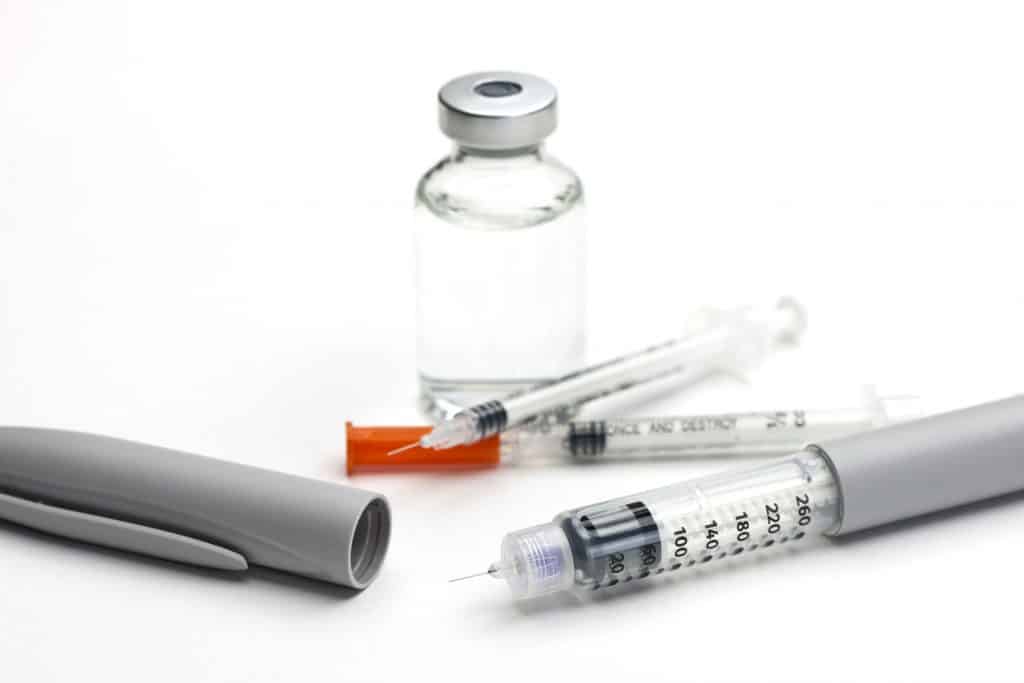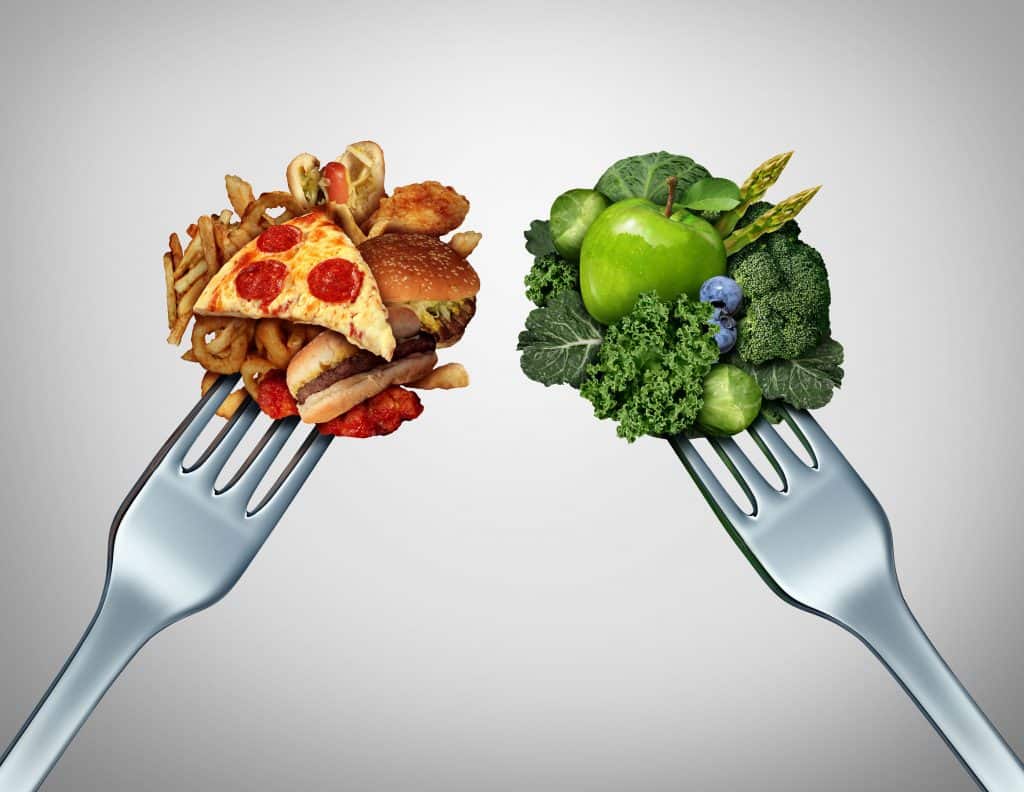How Can You Get Off Insulin – Information, Helpful Guide
Posted by Prescription Hope - See Editorial Guidelines (Last Updated On: Thu May 04 2023)
The CDC estimates that there are about 30 million Americans with diabetes, with 90-95% being individuals with type 2 diabetes. That number comes out to about 27 million people. Of those 27 million, 27%, or more than 7 million people, are on insulin. However, we know that insulin causes a financial burden for many, and it can be frustrating to deal with daily injections of the medication. So, how can you get off insulin? How Can You Get Off Insulin? One of the first steps in getting off insulin is to exercise and adjust your diet to help you lose weight. Fasting from food for a portion of the day may help, as well as changing lifestyle habits such as quitting smoking. Before we get into too much detail, we first need to understand why a person with type 2 diabetes may need to be on insulin injections.
Why Those with Type 2 May Need Insulin
 Those with type 2 diabetes can often manage their condition with diet and exercise or with diabetes medications. Some others with this type of diabetes require insulin to control blood sugar levels.
The problem here is that diabetes is a progressive disease. Therefore, there may be a decline in insulin production provided by the pancreas over time, requiring additional insulin to be injected.
A person with type 2 may start out on a once-daily pill that will control their blood sugar levels. However, if nothing changes with their lifestyle, they may need an adjustment to their dosage of medication or may be placed on insulin to replace their current treatment plan.
Insulin is undoubtedly beneficial when it comes to bringing blood sugar down to a normal range quickly. However, if you can get off insulin, wouldn’t you want to?
Your doctor may initially prescribe insulin at the beginning of your diagnosis to help kickstart your treatment plan. Getting your blood sugar into normal range will allow you to make lifestyle changes easier than if your blood sugar is elevated. If no lifestyle changes are made, though, you may stay on insulin.
Though insulin is beneficial for bringing blood glucose down, it can be expensive. Individuals may fear needles or fear the social awkwardness of injecting insulin also. This is enough to motivate someone to get off insulin injections.
Those with type 2 diabetes can often manage their condition with diet and exercise or with diabetes medications. Some others with this type of diabetes require insulin to control blood sugar levels.
The problem here is that diabetes is a progressive disease. Therefore, there may be a decline in insulin production provided by the pancreas over time, requiring additional insulin to be injected.
A person with type 2 may start out on a once-daily pill that will control their blood sugar levels. However, if nothing changes with their lifestyle, they may need an adjustment to their dosage of medication or may be placed on insulin to replace their current treatment plan.
Insulin is undoubtedly beneficial when it comes to bringing blood sugar down to a normal range quickly. However, if you can get off insulin, wouldn’t you want to?
Your doctor may initially prescribe insulin at the beginning of your diagnosis to help kickstart your treatment plan. Getting your blood sugar into normal range will allow you to make lifestyle changes easier than if your blood sugar is elevated. If no lifestyle changes are made, though, you may stay on insulin.
Though insulin is beneficial for bringing blood glucose down, it can be expensive. Individuals may fear needles or fear the social awkwardness of injecting insulin also. This is enough to motivate someone to get off insulin injections.
Ways to Get Off Insulin
Staying on insulin injections may allow you to enjoy the great tasting but low-quality foods such as cookies or cake. But is staying on insulin worth it? That is something you must determine for yourself. It is important to note here that getting off insulin may not be an easy and quick process. It will take some time and discipline to follow a health plan that works. A common denominator among the lifestyle changes that need to be made revolve around losing weight. Approximately 85% of those with type 2 diabetes are overweight. Therefore, losing weight is essential for helping individuals get off insulin. Here are ways that you can work towards losing weight and getting off insulin injections.Exercise
Exercise is one of the key changes you can make in your lifestyle to help you get off insulin. Now, we understand that exercise is challenging, and many do not know where to start. An excellent place to start is to start walking—either walking outside or at a gym. Slowly increase your pace and incorporate light weights. If you have a gym membership, consider using machines. Combining cardio and weight training will prove to be beneficial. Exercising regularly allows your body to utilize insulin more efficiently, allowing you to use less insulin. Two main types of exercises will help your body use insulin more effectively. They include aerobic and anaerobic exercises.
Aerobic exercise is your typical cardio such as long-distance running, walking, swimming, or biking. Your body burns glucose as its primary source of energy for performing this type of exercise.
Anaerobic exercises are typically short, high-intensity bursts of energy. Examples of this include sprints, jumping rope, and various weightlifting workouts. Your body relies on energy sources stored directly in the muscles for performing anaerobic exercises.
Both aerobic and anaerobic exercises are beneficial and will aid in helping individuals lose weight. If you are on insulin and start performing regular exercise, then talk to your doctor about possibly lowering your dose of insulin.
You want to make sure that you are checking your blood sugar often to ensure you are still controlling glucose levels and avoiding hypoglycemia. The more you get in the gym and perform physical activity, the more comfortable you become with it, and the better you start to understand your body.
Two main types of exercises will help your body use insulin more effectively. They include aerobic and anaerobic exercises.
Aerobic exercise is your typical cardio such as long-distance running, walking, swimming, or biking. Your body burns glucose as its primary source of energy for performing this type of exercise.
Anaerobic exercises are typically short, high-intensity bursts of energy. Examples of this include sprints, jumping rope, and various weightlifting workouts. Your body relies on energy sources stored directly in the muscles for performing anaerobic exercises.
Both aerobic and anaerobic exercises are beneficial and will aid in helping individuals lose weight. If you are on insulin and start performing regular exercise, then talk to your doctor about possibly lowering your dose of insulin.
You want to make sure that you are checking your blood sugar often to ensure you are still controlling glucose levels and avoiding hypoglycemia. The more you get in the gym and perform physical activity, the more comfortable you become with it, and the better you start to understand your body.
Cut This Out of Your Diet
There are certain things you should and need to cut out of your diet if you truly want to get off insulin. And the first aspect you may want to consider is how many calories you are currently consuming in a day. If you are going to lose weight, then you should be at a calorie deficit. Meaning, you should be burning more calories than what you are consuming in a day. For example, if you consume 2,000 calories a day, you should strive to burn around 2,500 calories for the day. So, for the first step in cutting back on your diet, consider cutting back on calories. Specific foods you should cut out of your diet include:- White bread
- White pasta
- Breakfast cereals
- Pastries
- Fruit juice
- Soft drinks
- Sugary syrups (maple syrup, honey, etc.)
- Potatoes/fries
- Fried foods
- Alcoholic beverages
- Dried fruits
Add This to Your Diet
 Adding certain foods and spices into your diet can prove to be beneficial in helping you lose weight and get off insulin.
Any carbohydrates that you are consuming should be complex carbs that have a low glycemic index. This carbohydrate will not spike blood sugar as dramatically due to the body absorbing it slower than that of simple carbs.
Here’s a list of foods that a person with type 2 diabetes should have in their diet:
Adding certain foods and spices into your diet can prove to be beneficial in helping you lose weight and get off insulin.
Any carbohydrates that you are consuming should be complex carbs that have a low glycemic index. This carbohydrate will not spike blood sugar as dramatically due to the body absorbing it slower than that of simple carbs.
Here’s a list of foods that a person with type 2 diabetes should have in their diet:
- Non-starchy vegetables (asparagus, broccoli, beets, etc.)
- Unsweetened Greek yogurt
- Berries (blueberries, strawberries, blackberries, etc.)
- Salmon and other fish with higher levels of omega-3
- Nuts and flaxseeds
- Beans and lentils
- Quinoa
- Whole grains
Fasting
Let me preface this by saying that you should always consult your doctor when making changes to your lifestyle. Fasting on any level can be dangerous while using insulin and requires medical supervision. There have been many accounts of individuals losing weight and improving their blood sugar control through intermittent fasting. Not all of these claims have come from patients with diabetes, though. Intermittent fasting is defined as only eating within a specific time frame during the day or week. For example, many people follow a pattern of eating between the same 8 hours a day and fasting the other 16 hours. The problem with this, though, is that a person with diabetes and using insulin may experience hypoglycemia, which can be life-threatening. Following this fasting plan may be beneficial after you are already off insulin to help you lose more weight and improve insulin sensitivity. The effects of intermittent fasting on type 2 diabetes is relatively new, and much research needs to be done.Quit Smoking
Those that smoke regularly are at an increased risk of developing diabetes by 30-40%. If you already have diabetes and are smoking, then you are more likely to have health complications. Smoking changes the way in which your body processes sugar, making it difficult to regulate blood sugar levels. It should be noted here that those with diabetes that quit smoking may find it difficult to control blood sugar levels temporarily. Some patients that quit smoking may also experience some weight gain. Cigarettes can have an appetite suppressant effect. So, every time someone smokes, they are decreasing their craving for food. Therefore, if you quit smoking, you may experience an increased craving for various foods. This can result in weight gain and poor glucose control. Developing a healthy routine consisting of proper diet and exercise after you quit smoking will help you gain better control of your health and minimize the side effects of quitting nicotine. Overall, by quitting smoking, you are improving your heart health and working towards preventing farther health complications. This can increase your insulin sensitivity, which will lead to helping you get off insulin.Get a Coach
Getting a health coach is a great step to take if you have the resources for one. This can include a personal trainer or nutritionist. As you talk to them about your goals, they will be able to give you step by step instructions to help you obtain your goals. On top of this, they are someone that will hold you accountable. Staying disciplined with your diet and exercise can be extremely difficult if you are doing it on your own. When looking for someone to be your personal health coach, you want to make sure that they have proper certifications and education.Conclusion
We hope that this has provided you with the information you were looking for regarding how you can get off insulin. Getting off insulin is difficult for many; placing a long-term financial burden on individuals. If you are having trouble affording your insulin, diabetes medication, or other prescription medication, then contact Prescription Hope. We work with over 180 pharmaceutical companies to obtain your medicine at a set, affordable cost. Enroll with us and pay just $60.00 a month through Prescription Hope’s medication access service for each of your medications.ENROLL



